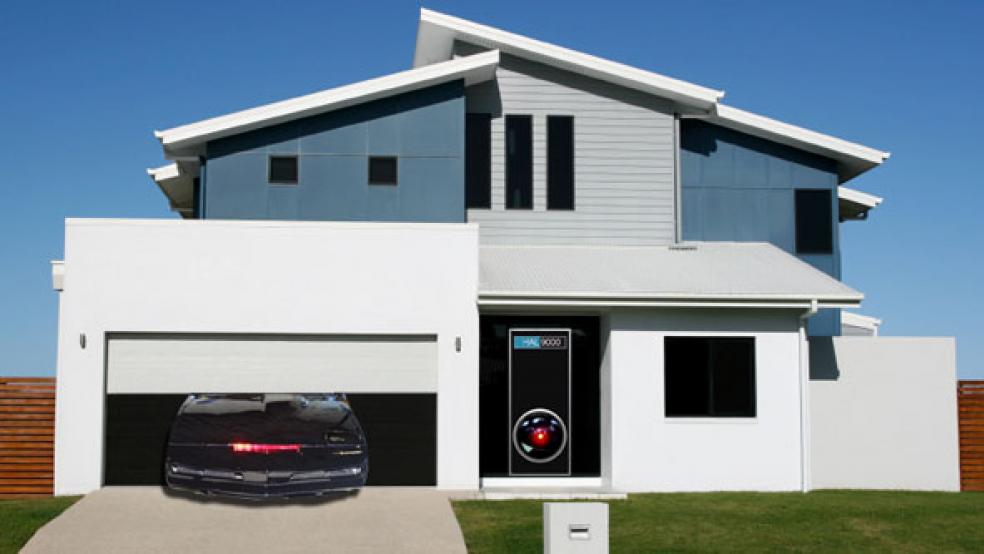My house and my car are getting smarter. After replacing a furnace, a water heater, a dishwasher, a car, and a coffee maker, I would give my house a B- on an IQ test. The problem is, the smarter our houses become, the more incompetent we become–with impunity.
Let’s start with the car. It not only signals when you forget to secure your seat belt, it beeps when you get a little close to another object. It probably has some version of the technology used in airplanes, as in “pull up, pull up” when you about to slam into a mountain. The result: you no longer have to master parallel parking since the car guides you through it. Say goodbye to spatial skills. And of course, there’s the GPS system. Latitude? Longitude? Who cares? We don’t need to read maps; we get our geography by an officious sounding person who lives in a little window on the dashboard. And don’t bother kicking the tires; if one of them loses air, you’re notified immediately with a dashboard signal. Of course all of this will be “old tech” when self-driving robotic cars replace current models (Google is testing one now). The only decision we’ll have to make—should we sit in the front seat and pretend we’re driving or in the back seat and pretend we have a chauffeur.
Then there’s the house. Our new Sears dishwasher has the nerve to flaunt its brilliance. It has two smart settings that calculate the nature of the load and calibrate the wash and dry times and the amount of water needed. It even has the audacity to say “complete” when the cycle is finished as opposed to simply “clean.” So I no longer need to think of the dishwasher as a giant jigsaw puzzle where every piece fits. Goodbye to logistics. The good news is that after reviewing the tome-like manual, you can convince yourself that you’re the next Mark Zuckerberg as you “program” your appliance.
I wonder what a child growing up in a smart house will be like. What they will learn? Cooking? No need when you can nuke prepared meals from any supermarket. Cleaning? Get the Roomba! Typing? Every new device “fixes” typos automatically, and you don’t need to know grammar or spelling with spell check. Calculators, Excel spreadsheets, interactive tools—all do the math for you, so learning basic arithmetic is a waste of time.
Even music has been “technified.” Karaoke apps turn “mouthers” into Alicia Keyes or Sinatra by changing off-key notes to on. Guitar hero, Virtuoso Free (piano), and Beat Beat Play (drums) all make tone-deaf wannabes into Bruce Springsteen. But like other technology, they give users the false sense of being good at something even though they can’t carry a tune or read music.
There's a mobile app for almost anything you may want to do, any situation you confront. Just because John Huntsman speaks Chinese, doesn't mean you can't understand him. Just use your translation app, and you'll never have to invest in Rosetta Stone and actually learn how to speak or write the language. If you can't figure out which language app to download on your smart phone, just let the artificially intelligent iDecide make the call for you. Then you can start sucking your thumb. And if you do regress to baby status, your parents can lull you to sleep with a terrific bedtime story, courtesy of a "create your own fairy tale app."
The problem with all of this brilliant technology is that it's lulling us into the national delusion that we’re better at things than we really are. That delusion might not seem important if the global economy weren't nipping at our heels and challenging Americans to be smarter, faster, more rigorous and more aware that other countries are beginning to beat us at our game.
That game will likely be available for download on your smarter than smart phone.



